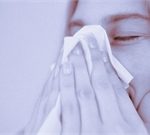
As the U.S. coronavirus case count eclipsed 1.8 million and the death toll passed 107,000 on Thursday, America’s jobless rolls swelled to nearly 43 million. That’s close to one-quarter of the country’s work force. The U.S. Labor Department reported 1.9 million more people filed new unemployment claims last week, a sobering reminder of the economic toll the coronavirus pandemic has taken on Americans, CNN reported. At the same time, fears of a spike in new infections were stoked by a new review that shows that crowded protests against police brutality have occurred in every one of the 25 U.S. communities with the highest concentrations of new COVID-19 cases. The Associated Press analysis also found that some cities — Minneapolis, Chicago, Washington, D.C., and Los Angeles among them — have witnessed protests on multiple days. In some communities, such as Minneapolis where the protests started, the number of people hospitalized with COVID-19 has also been rising, the news agency added. The close proximity of protesters and their failure in many cases to wear masks, along with police using tear gas, could fuel new transmissions. Tear gas can cause people to cough and sneeze, as can the smoke from fires set in some instances, the AP said. Both factors can also prompt protesters to remove their masks. Putting arrested protesters into jail cells can also increase the… read on >

















